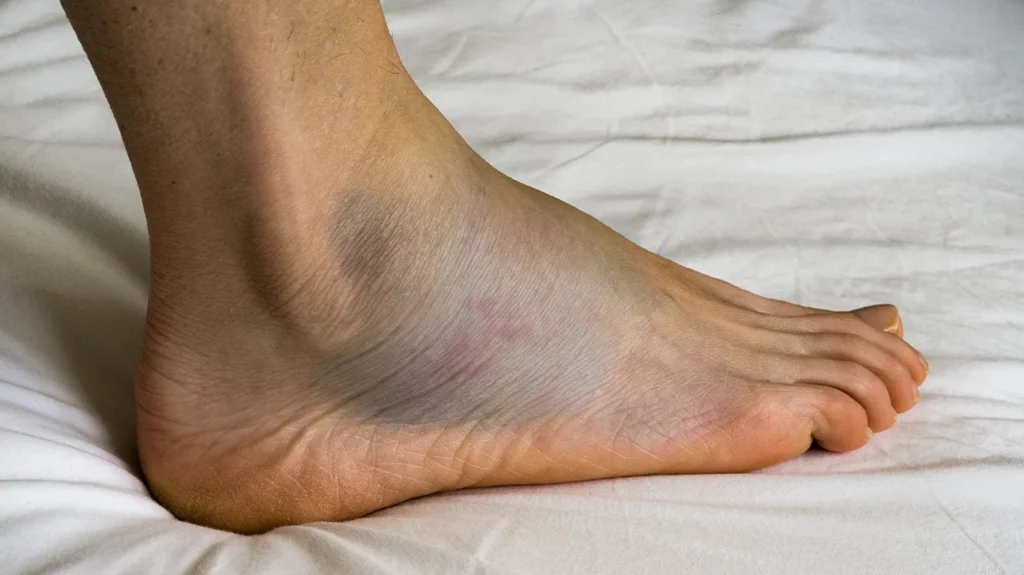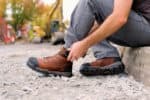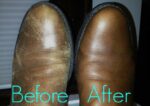One would think that wearing flat shoes would be extremely comfortable, that is until your feet swell.
From flip-flops to ballet slippers, moccasins, or sandals, flat shoe styles are attractive, and they probably won’t pinch your toes.
But why would comfortable shoes cause your feet to swell? Here are several causes and what to do to prevent swelling.

Why Are My Feet Swelling in Flat Shoes?
The principal reason that feet swell is due to your feet overheating while you are walking in them, and this stimulates swelling. However, there many various reasons including:
1. Flats can also compress foot tissue and negatively affect the blood flow in your feet causing feet to swell.
2. Underlying health issues such as arthritis, cardiac disease, diabetes, blood clots, or kidney disease can stimulate swelling.
3. Obesity or weight gain
4. Infections
5. Wearing flat shoes that are the wrong size.
6. Pregnancy and hormonal alterations
7. Medications including steroids, hormones, and anti-depressants
8. Standing for long periods
9. Walking long distances
Flat shoes often do not have sufficient support for arches, so your toes will be working overtime. Constant rubbing or pressure can inflame tissue.
Whatever the cause, you should consult a medical professional to be on the safe side if your flats are causing your feet to swell.
What Types of Flat Shoes Can Make Feet Swell?
Flat shoes that are too tight can negatively affect blow flow and cause feet to swell as can flat shoes made from any material that does not allow feet to breathe.
Should You Be Concerned If Your Feet Swell?
If the swelling of your feet is sudden, it would be worth your while to seek medical advice. You should also consult a medical professional if the swelling is severe.
If a good part of your day is spent standing or walking, some swelling in your ankles or feet is not considered to be particularly dangerous, unless you have other health concerns or if the swelling does not subside.
Water retention or Edema needs to be taken seriously. This type of swelling can be caused by a blood clot, an insect bite, an infection, an injury, or worse.
If pain and swelling are persistent, check in with your doctor. Swollen feet can be symptomatic of a more severe condition.
Is It Dangerous to Wear Flat Shoes?
Wearing flat shoes can only be dangerous if your feet experience severe swelling. If you can prevent swelling, flat shoes can be not only fashionable but extremely comfortable.
Are There Methods That Can Prevent Swollen Feet?
There are some things that you can do to reduce the risk of your feet swelling when wearing flat shoes. These include:
1.) Make sure you have acquired the correct shoe size and that the fit is comfortable.
2.) Make sure that your clothing is not too tight, especially in the thighs and hips, as well as the waist.
3.) Wear socks with your flats that aid in wicking away moisture, hence keeping feet cool.
4.) Drink ample amounts of water during your day.
5.) Take breaks to rest your feet at regular intervals. Avoid standing or walking for long periods without a pause.
What Should I Do If I’m Wearing Flats and My Feet Swell?
If you are out and about or at work wearing flat shoes and you feel your feet begin to swell, try these methods to get the swelling under control.
1.) Elevate your feet for a short period. Sit down, pull up a chair, stool, or hassock, and keep your feet raised.
2.) Apply cold packs or compresses, cool gel packs, or ice to your feet to reduce swelling.
3.) Try removing your shoes and walking around bare foot. In this way, you can stretch the muscles in your feet which may contribute to reducing swelling.
What Else Can I Do to Avoid Swollen Feet When Wearing Flat Shoes?
If your notice your feet swelling after walking around in flat shoes, there are a few things you can do to help the situation.
1.) You can begin by purchasing flat shoes that have a design with a wider toe box or even an open-toe style.
2.) Soak your feet for several minutes in cold water.
3.) Apply a cool anti-inflammatory gel or ointment to your feet to ease swelling and accompanying pain.
4.) Try wearing compression socks. These should provide legs, ankles, and feet with more support and aid in reducing swelling. Wearing compression socks will also aid in improving blood circulation in your feet and your legs.
5.) Make sure you get sufficient rest and consider sleeping with your legs slightly raised on a pillow.
6.) Take time to stretch calf muscles. Do this by sitting on the floor and stretching your legs out in front of you and pulling gently on your toes. Pull them toward you. Hold the position for approximately 20 seconds and repeat several times.
What If I Am Experiencing Pain When Wearing Flat Shoes?
It’s much more common than one might think to experience pain from the Achilles tendon when wearing flats.
This usually happens when arches and heels do not have sufficient support provided by the shoe. This may also be a contributing cause if you suffer from the condition Plantar fasciitis.
If wearing a specific pair of flat shoes causes you pain, try these methods to reduce your discomfort.
1.) Warm your feet. Often when slipping flat shoes on cold feet, pain can be triggered. Put on a pair of cotton or woolen socks.
2.) Change your footwear and choose a pair that are the proper size and fit. Opt for shoes made from soft materials like suede, or soft, supple leather.
3.) Choose to not wear heels. Heel height can create pressure points especially if you are wearing heels for lengthy periods. Also, when wearing heels, it’s crucial to wear the proper size, not too tight or too loose-fitting.
4.) Wear socks to prevent blistering.
5.) Increase your water intake to prevent swelling and increase circulation.
6.) Take breaks and gently stretch your legs.
7.) Put your feet up whenever you feel pain beginning.
8.) Apply ice packs on painful spots
9.) If you feel discomfort due to health issues such as heart, liver, or renal problems, put on compression socks to prevent or reduce fluids from accumulating in your feet.
The Bottom Line
Despite the risk of causing feet to swell, flat shoes are comfortable, and unlike high heels, they won’t pinch your toes whether walking for long periods, distances, or just standing around. With a few smart habits, you’ll be happy to be wearing flat shoes.







